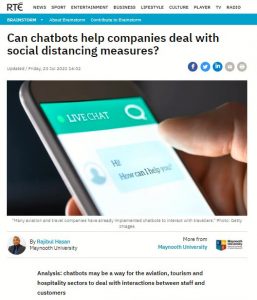Abstract
As the digitalisation of businesses continues to change customers’ purchasing habits, brick-and-mortar retail SMEs (Small and Medium Enterprises) are confronted with unprecedented challenges. The proliferation of e-commerce and digital businesses is not only changing the rules of business but disrupting them by introducing new possibilities, especially with the integration of new technology. Studies that have attempted to measure technology-based service quality in retail settings are limited to online service experiences, creating a significant gap in the literature. The primary purpose of this paper is to explore how the service quality of brick-and-mortar clothing retail chains can be improved using innovative technology such as smart mirror fashion technology (SMFT), something academic research has not yet specifically addressed. This study used a qualitative approach with Soft System Methodology (SSM), based upon interviews triangulated with observations and field notes. It focused on the top five UK clothing retail chains, measured by market capitalisation. We found that the quality of service received is currently perceived as low when compared to customers’ expectations; however, use of technology enhanced service quality and influenced customer satisfaction. There was a positive relationship between service quality, customer satisfaction and the use of SMFT. The contribution of this study lies in the development of a new framework that integrates SMFT with traditional in-store transaction processes, resulting in improvements in service delivery and managerial practices of the offline clothing retail service providers. The study concludes that embracing SMFT can help provide high-quality service, creating value for customers.
Please cite this article as: Ayotunde Ogunjimi, Mizan Rahman, Nazrul Islam, Rajibul Hasan, Smart mirror fashion technology for the retail chain transformation, Technological Forecasting, and Social Change, Volume 173, 2021, 121118, ISSN 0040-1625,https://doi.org/10.1016/j.techfore.2021.121118.
50 days’ free access to the article available from the following link-
https://authors.elsevier.com/c/1diPr98SGp3tB
To know more about my research in this area, please visit the following link-



